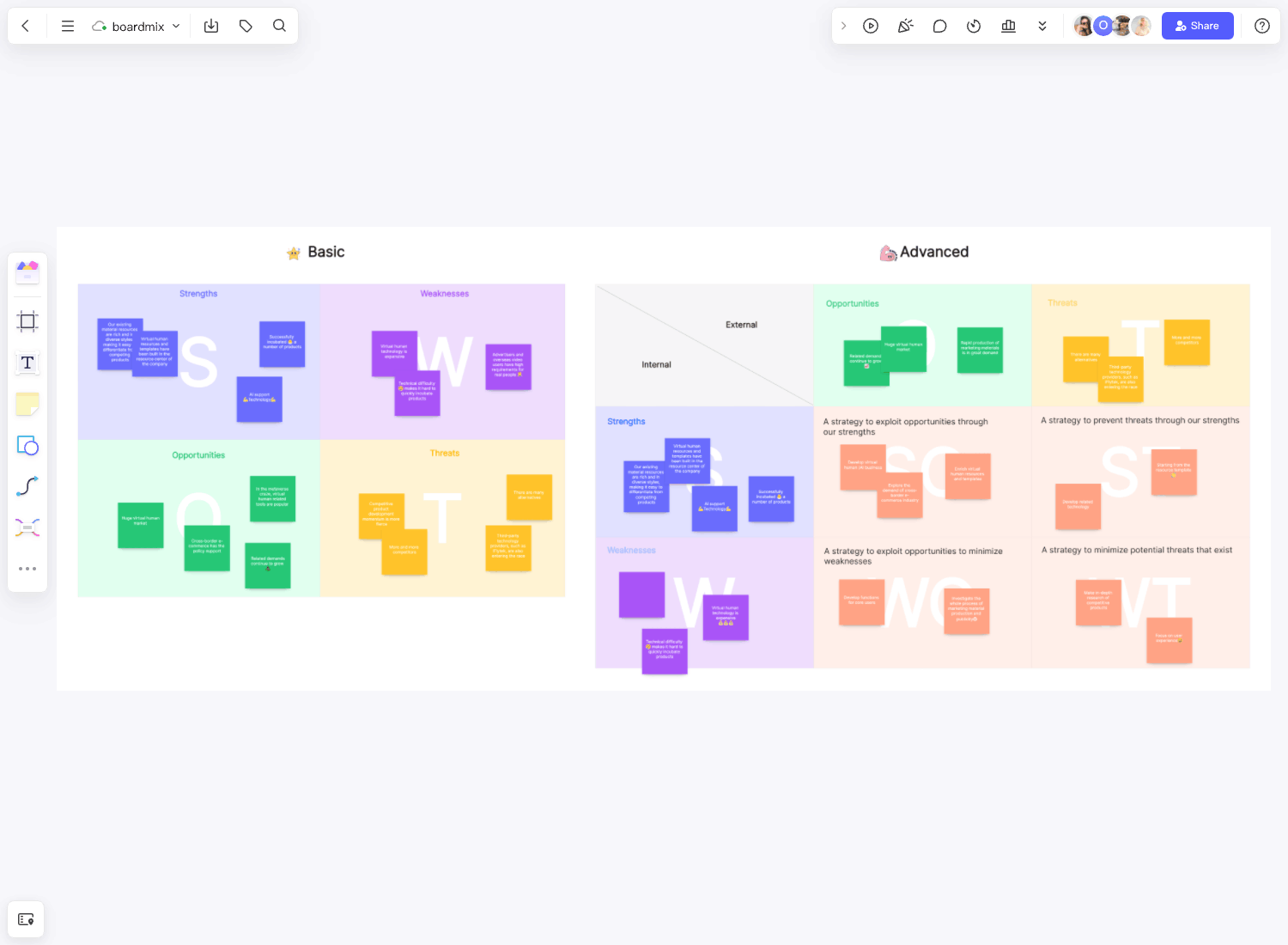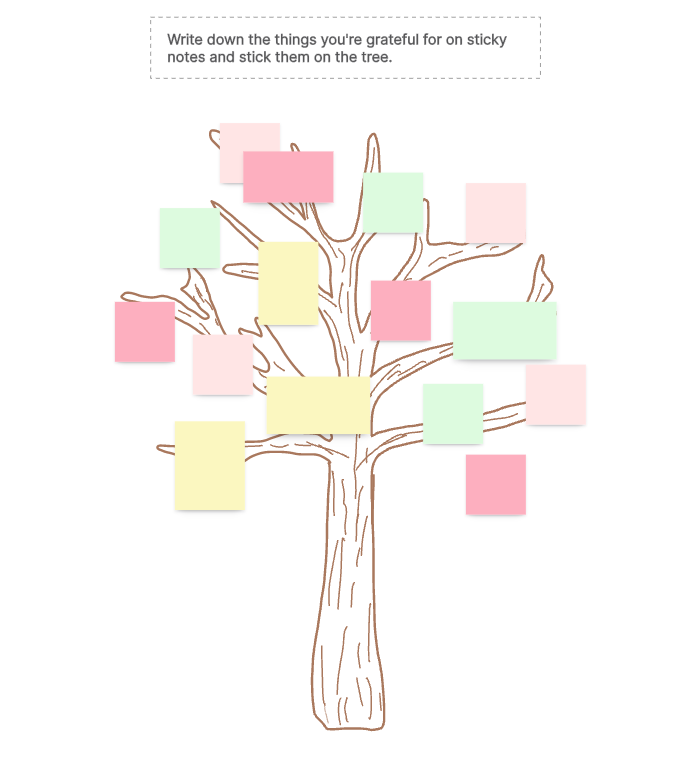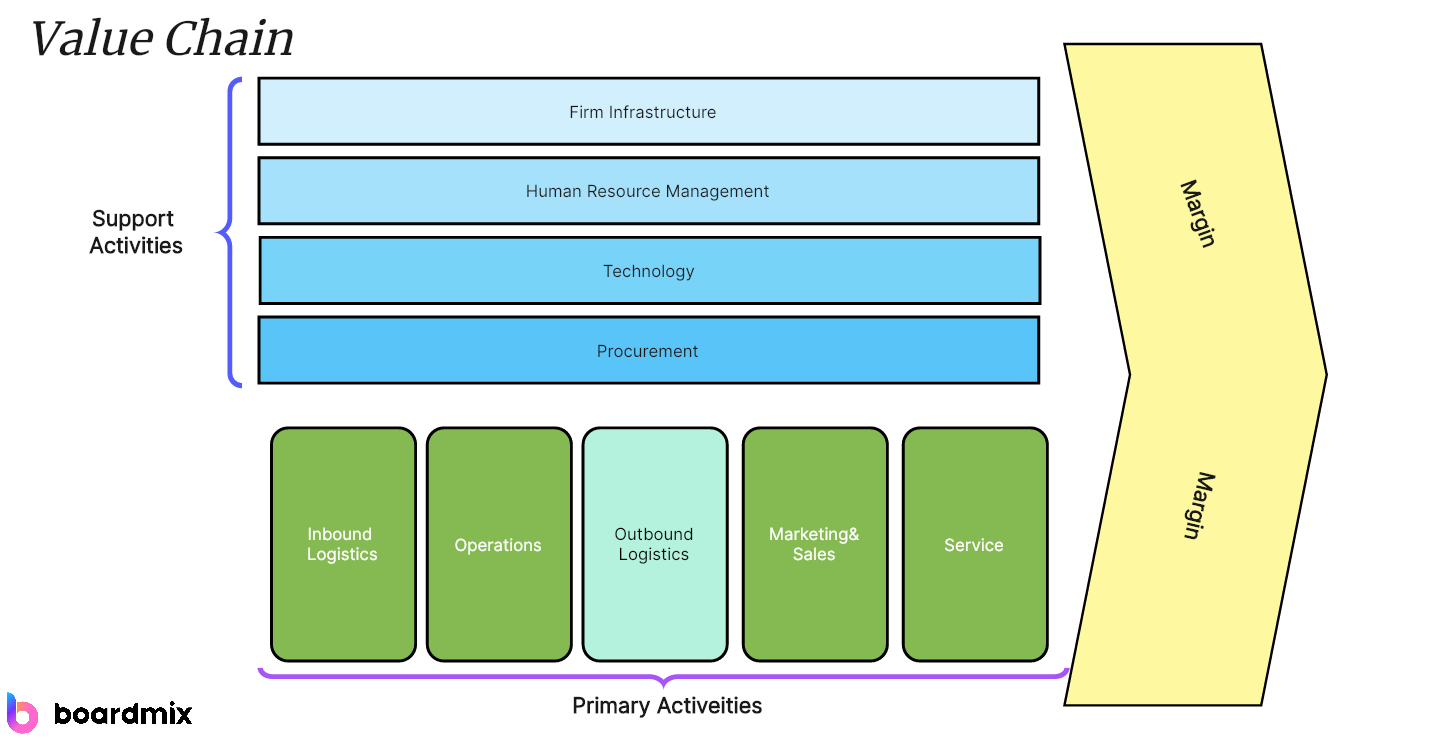Welcome to an in-depth exploration of problem-solving workshops. These engaging, interactive sessions are meticulously designed to tackle pressing challenges, stimulate innovative solutions, and promote a culture of collaboration within teams. This article serves as your comprehensive guide, offering insights into the essence of problem-solving workshops, their numerous benefits, and the systematic steps involved in conducting one effectively. We aim to equip you with the knowledge and tools necessary to leverage these workshops for optimal team performance and productivity.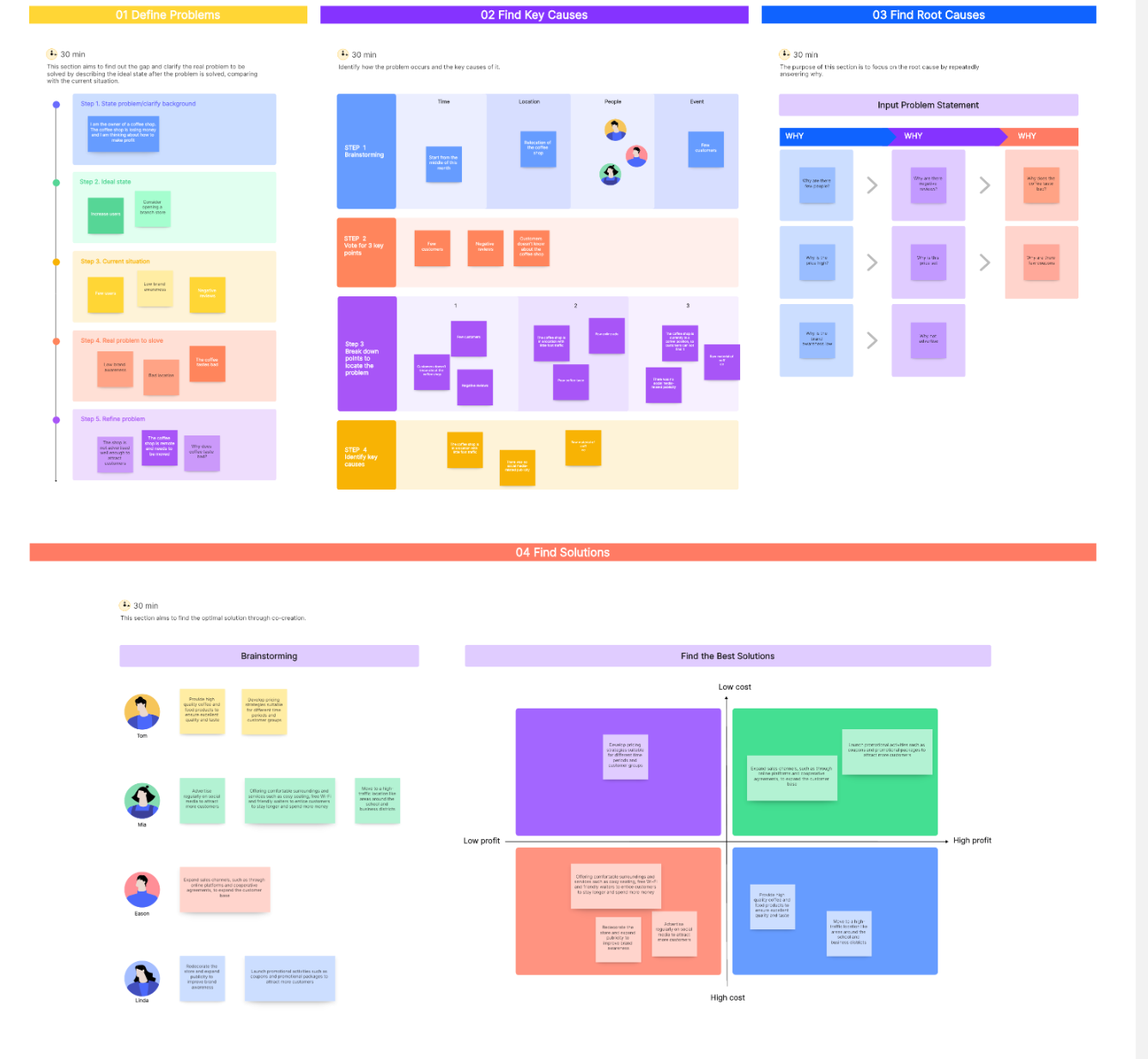
Part 1. What Is a Problem-solving Workshop?
A problem-solving workshop is a meticulously structured gathering, designed to bring team members together in a collaborative environment. In this setting, participants work collectively to identify prevailing issues, brainstorm innovative solutions, and formulate a strategic action plan. This process not only encourages open communication but also fosters an atmosphere of creativity and critical thinking. It provides an opportunity for each participant to contribute their unique perspectives and ideas, thereby promoting diversity of thought and comprehensive problem-solving. Ultimately, these workshops serve as a catalyst for team synergy and effective resolution of challenges.
Part 2. How Can Problem-solving Workshop Help?
Problem-solving workshops are a powerful tool that can dramatically elevate team performance. By fostering an environment of collaboration, these workshops encourage team members to work together towards common goals. They enhance decision-making skills by providing a platform for open discussion and critical analysis of various solutions. Moreover, they stimulate creative thinking by encouraging participants to think outside the box and propose innovative solutions. The structured approach provided by these workshops ensures that challenges are tackled systematically and effectively, reducing the likelihood of oversight or missteps. Furthermore, problem-solving workshops contribute to creating a culture of continuous learning and improvement within the organization. They provide opportunities for individuals and teams to learn from their experiences, adapt their strategies, and continually strive for better results. This ongoing process of learning and development is crucial in today's fast-paced business environment where adaptability and resilience are key to success.
Part 3. What Are the Six Steps of Problem-Solving Workshop?
In the preparation phase of a problem-solving workshop, there are six commonly recognized steps that one should meticulously follow: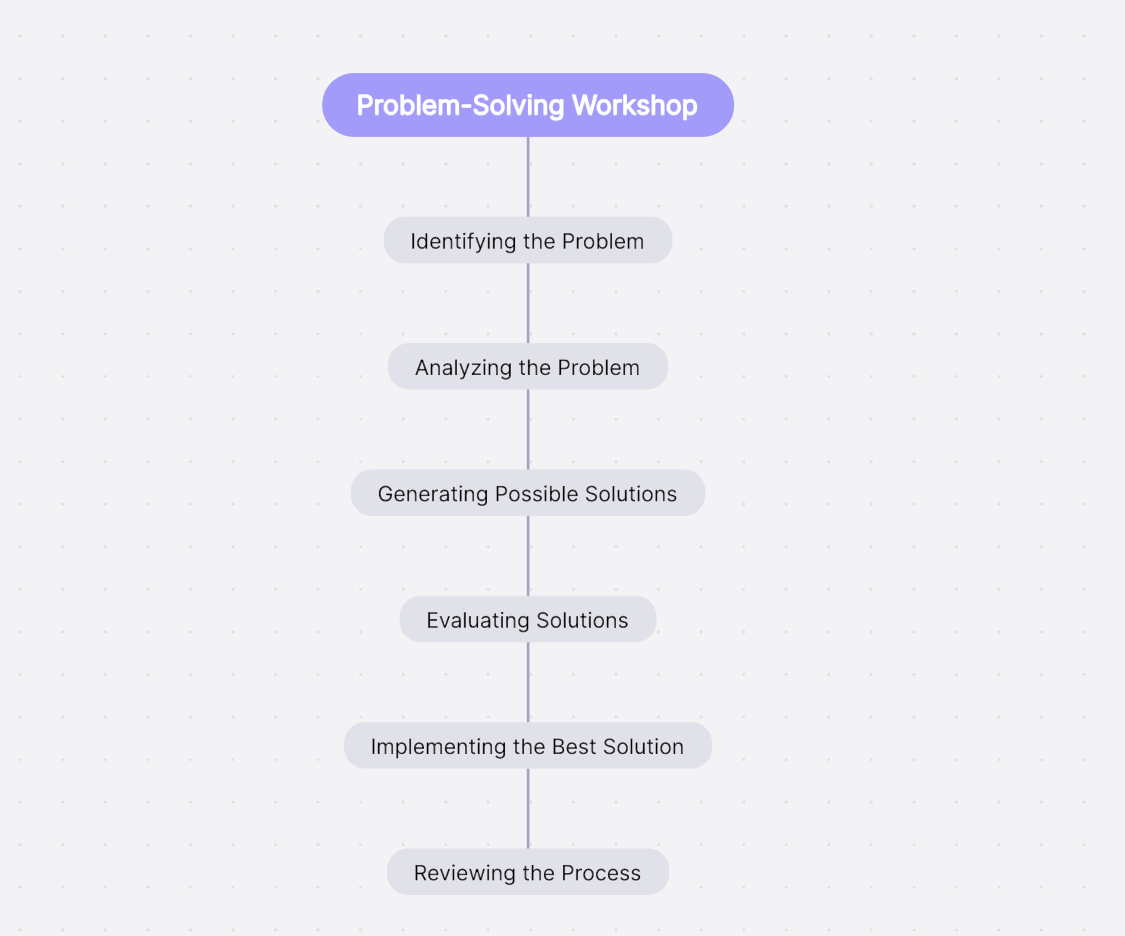
- Identifying the Problem: This is the initial stage where team members collectively recognize and articulate the issue at hand. It's crucial to define the problem accurately to set a clear direction for the workshop.
- Analyzing the Problem: Once identified, the problem is dissected and examined in detail. The goal here is to understand its root cause, its impact, and any underlying factors that may be contributing to it.
- Generating Possible Solutions: In this creative phase, participants brainstorm a variety of potential solutions without judgment or evaluation. The aim is to encourage innovative thinking and generate as many ideas as possible.
- Evaluating Solutions: Here, each proposed solution is critically assessed based on its feasibility, potential impact, resources required, and alignment with organizational goals. This step ensures that only viable solutions are considered for implementation.
- Implementing the Best Solution: After careful evaluation, the most effective solution is selected and put into action. A detailed plan outlining tasks, responsibilities, timelines, and resources is developed for smooth execution.
- Reviewing the Process: Finally, once the solution has been implemented, it's important to review and reflect on its effectiveness and learn from the experience. This step helps in continuous improvement and prepares teams better for future problem-solving endeavors.
Each step is crucial in ensuring that problems are thoroughly addressed and resolved effectively.
Part 4: How Boardmix Can Help Prepare a Problem-solving Workshop?
Boardmix is a cutting-edge online whiteboard tool, designed with innovation at its core. It offers a diverse range of templates tailored for different types of workshops, including those focused on problem-solving. This makes Boardmix an invaluable resource for teams seeking to streamline their collaborative efforts and enhance their problem-solving capabilities.
Here’s how you can use Boardmix for your next problem-solving workshop:
1) Sign up or login to Boardmix and go to workspace.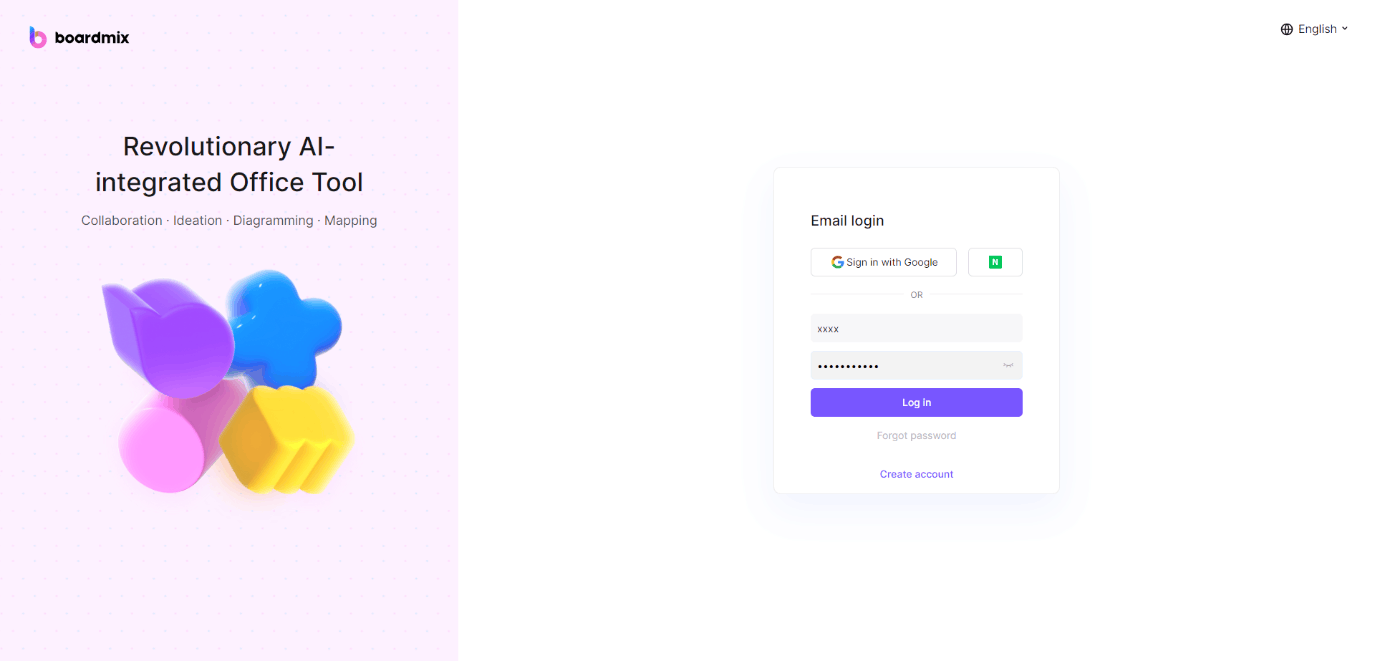
2) Go to Templates and select the Problem Solving Workshop template.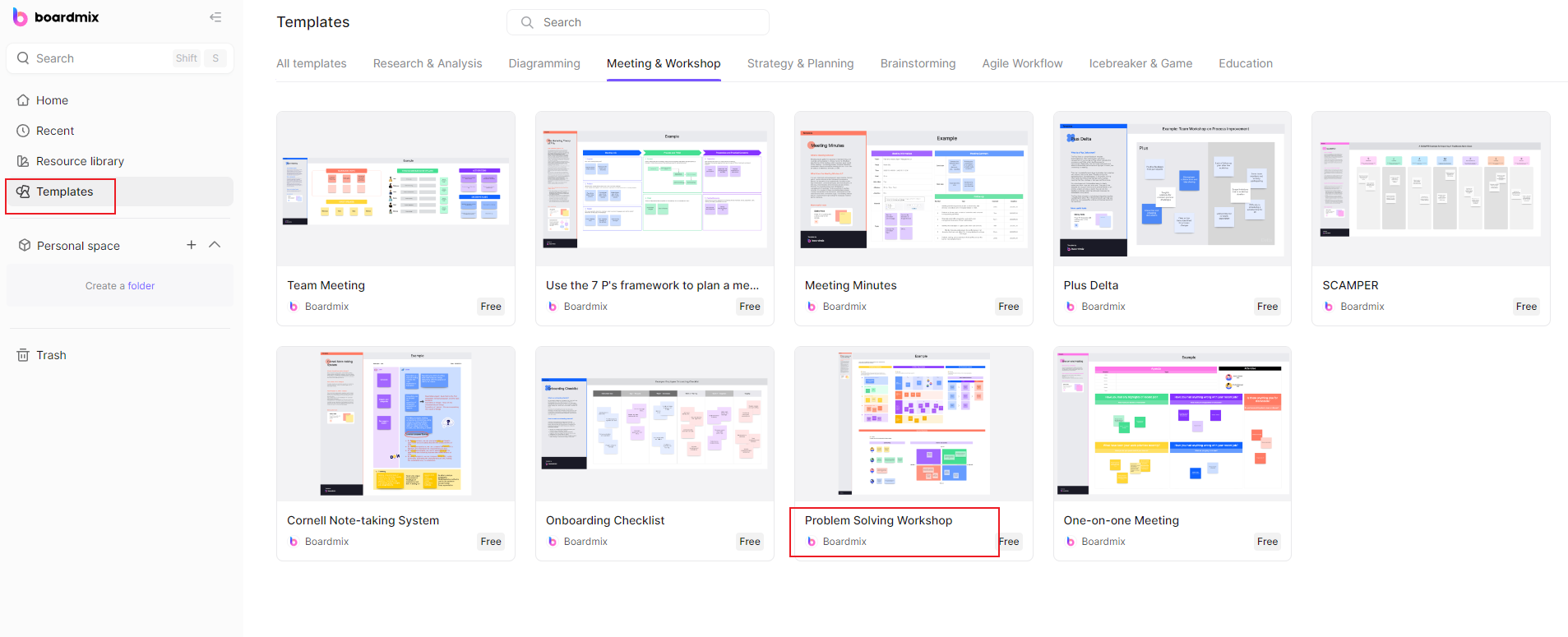
3) Click Use to apply this template.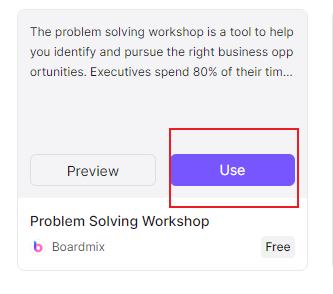
4) You can then write down your problems and other thoughts there. Click the share button and invite your partners to work together.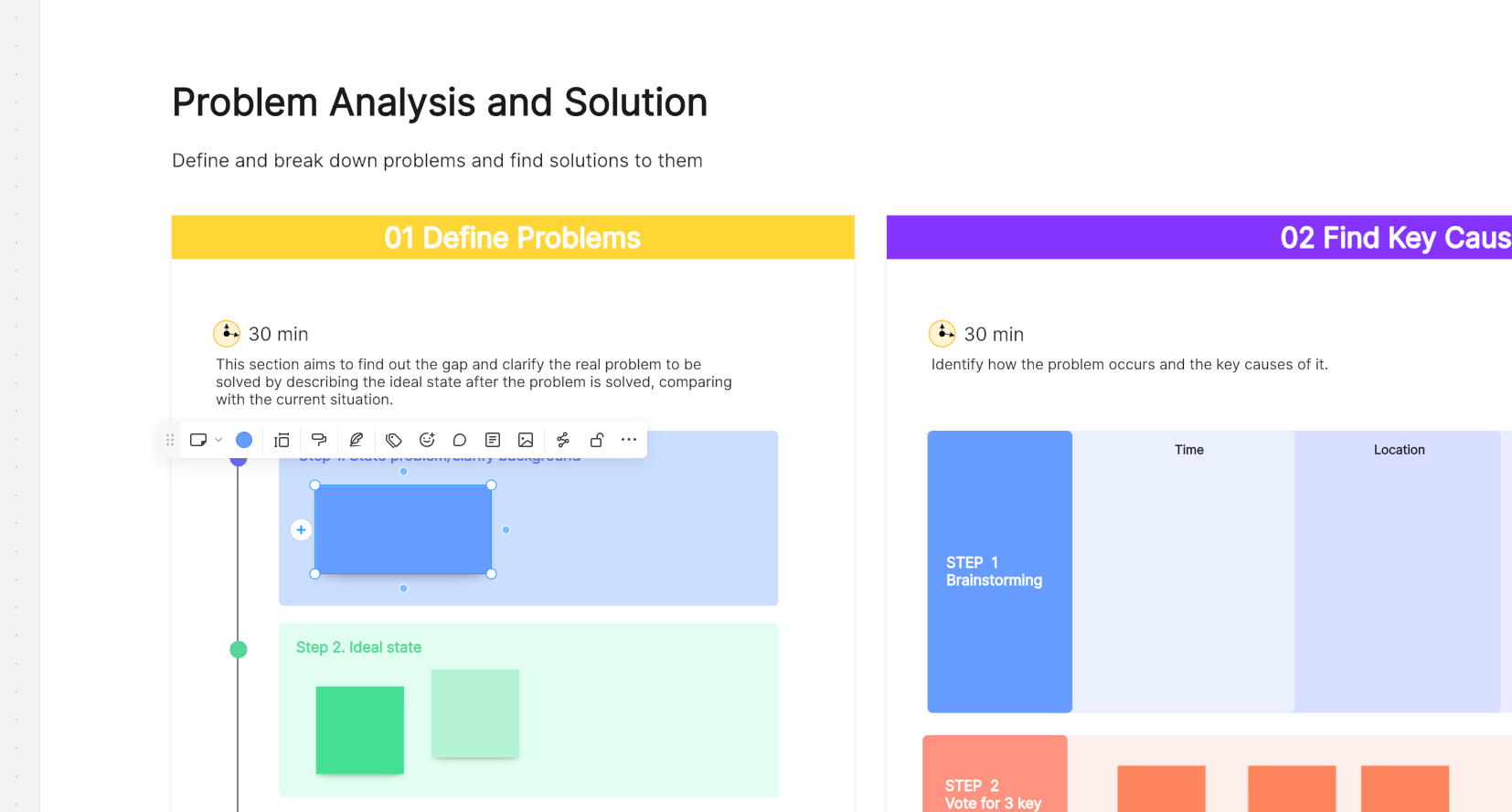
FAQs on Problem-Solving Workshop
1. What are the 4 styles of problem solvers?
The four styles of problem solvers are: a) Analytical Problem Solvers: These individuals approach problems with a logical, fact-based mindset. They rely on data and detailed analysis to arrive at solutions. b) Intuitive Problem Solvers: These people rely on their gut feelings and instincts when solving problems. They often come up with creative and out-of-the-box solutions. c) Practical Problem Solvers: These problem solvers prefer straightforward, practical solutions that can be implemented easily. They focus on what works in the real world. d) Emotional Problem Solvers: These individuals consider the emotional aspects and human elements of a problem. They tend to prioritize harmony and consensus in their solutions.
2. What are the 7 problem-solving strategies?
The seven problem-solving strategies include: a) Trial and Error b) Brainstorming c) Root Cause Analysis d) SWOT Analysis (Strengths, Weaknesses, Opportunities, Threats) e) The Five Whys Technique f) Cost-Benefit Analysis g) Decision Matrix
3. What are the 5 principles of problem solving?
The five principles of problem-solving are: a) Understand the Problem: Clearly define and understand the issue at hand. b) Devise a Plan: Develop a strategy or method to tackle the problem. c) Carry Out the Plan: Implement your strategy while being open to adjustments along the way. d) Review Your Solution: Once you've found a solution, review it to ensure it effectively solves the original problem. e) Learn from Experience: Reflect on what worked well and what didn't during your problem-solving process for future reference.
Conclusion
Problem-solving workshops provide a potent platform to confront challenges directly, while simultaneously nurturing teamwork and innovation within your organization. These workshops serve as a catalyst for creative thinking and collaborative problem-solving, fostering an environment conducive to growth and progress. With the advent of tools like Boardmix, preparing for such interactive sessions has become more streamlined than ever before. Boardmix's intuitive design and diverse range of templates make it an indispensable tool for all your collaborative needs. Embark on your journey towards enhanced team productivity and effective problem resolution by incorporating Boardmix into your workflow today!






